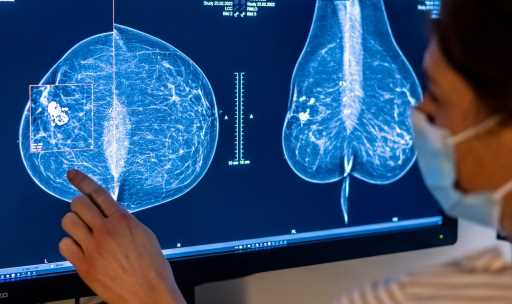Women with dense breast tissue are more likely to develop breast cancer, yet most of us aren’t educated by our doctors about this risk factor. A new regulatory measure from the Food and Drug Administration (FDA) seeks to change that.
The FDA is planning to implement new mammogram standards to support people with dense breasts, according to a letter from Katherine Klimczak, the agency’s acting legislative director. Writing to United States Rep. Rosa DeLauro of Connecticut, Klimczak said the FDA aims to “modernize” its breast cancer screening standards by requiring that healthcare providers “identify whether the patient has one of two categories of density (whether the patient has low or high density breasts) and include a prescribed paragraph on the significance of breast density.”
The agency is “optimistic that the [new regulation] will publish before the end of the 2022 calendar year or early 2023,” Klimczak added.
This is significant because many women aren’t aware that they have dense breasts — or that breast density is a risk factor for developing cancer. Once this update goes into effect, doctors nationwide will be mandated to educate their patients about breast density, empowering people to make more informed decisions about screenings.
Since dense breast tissue can sometimes obscure small tumors on mammograms, people with dense breasts may want to request a different screening procedure, such as a breast ultrasound or MRI. They may also opt for more regular screenings.
https://www.instagram.com/p/Cj5_h-yvzpa/
A post shared by Katie Couric (@katiecouric)
The FDA’s announcement comes on the heels of mounting pressure from Rep. DeLauro, a vocal advocate for breast cancer awareness, and journalist Katie Couric, who recently opened up about her breast cancer diagnosis. In a personal essay published in September, the TODAY show alum noted that she recently learned she has dense breasts.
“Forty-five percent of women in this country (yes, nearly half) have dense breasts, which can make it difficult for mammograms alone to detect abnormalities,” she wrote. “Currently, 38 states require doctors to notify their patients if they have dense breasts. But often that information doesn’t clearly convey the need to have a supplemental screening or this very important fact: The denser your breasts, the higher your risk of cancer.”
Breast cancer is the second most common cancer among cisgender women in the United States, according to the Centers for Disease Control and Prevention (CDC). Like most cancers, early detection is associated with a better prognosis. Most cases are diagnosed in older women, so health officials recommend mammograms every other year for women ages 50–74 at average risk.
The screening recommendations shift slightly for women at higher risk of developing breast cancer, including those with certain genetic mutations, a family history of breast or ovarian cancer, or aforementioned high breast density. In these cases, annual mammograms may be more appropriate. Depending on their personal risk factors, some women may opt to start getting mammograms as early as 40 years old.
“Please get your annual mammogram,” Couric added. “I was six months late this time. I shudder to think what might have happened if I had put it off longer. But just as importantly, please find out if you need additional screening.”
Before you go, check out these products patients and survivors of breast cancer can actually use:

Source: Read Full Article

